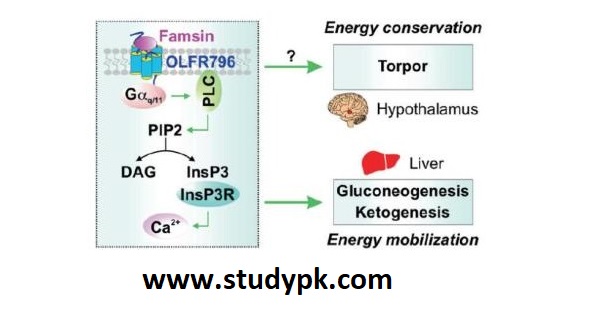Chinese Researchers Discover New Gut-Secreted Hormone “Famsin” Contributing to Metabolic Adaptations during Fasting

A recent study published in Cell Research by researchers from Tsinghua University and Zhejiang Chinese Medical University has identified a new gut-secreted hormone named “famsin” that contributes to metabolic adaptations during fasting.
Role of the Intestine in Metabolism
The intestines are responsible for nutrient absorption and orchestrate metabolism in different organs during feeding, and intestine-secreted hormones partly control the process. However, it is unclear whether the intestines play a role in metabolism during fasting.
The Function of Famsin
The newly-identified hormone “famsin” is shed from a protein called Gm11437 during fasting, and then binds to an olfactory receptor named OLFR796. This famsin-OLFR796 binding promotes the generation of glucose from certain non-carbohydrates and ketone bodies by breaking down fats and conserving energy during fasting. Therefore, famsin is essential in promoting metabolic adaptations to fasting.
Famsin as a Potential Therapeutic Target for Diabetes
The researchers found that blocking the signaling of the famsin-OLFR796 binding improves the blood glucose level in diabetic mice, making famsin a potential therapeutic target for treating diabetes. Neutralizing famsin by an antibody can improve blood glucose profiles in diabetic models, thus identifying famsin as a potential therapeutic target for treating diabetes.
Conclusion
The study demonstrates the communication between the intestines and other organs by a famsin-OLFR796 signaling axis that is critical to metabolic adaptations to fasting. Therefore, famsin could potentially be used to develop novel treatments for metabolic disorders such as diabetes.
Leave a Reply